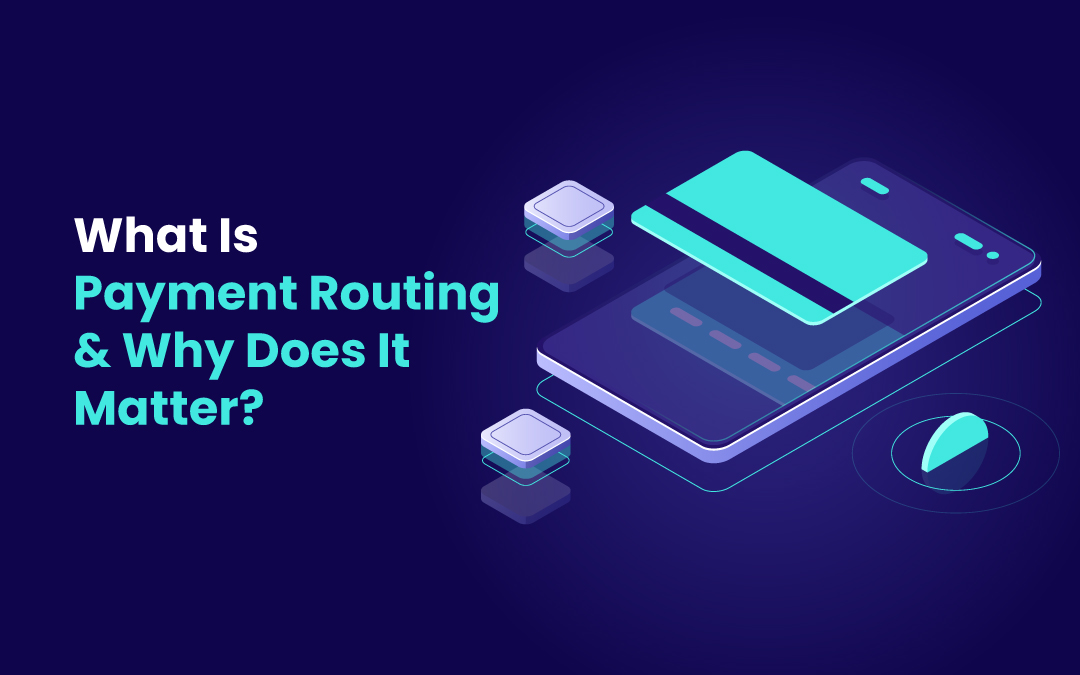
Millions of digital payments are made every second — buying products, subscribing to services, paying for services. For businesses, every failed transaction means a missed opportunity, while for consumers, it is frustration. Why do some transactions go through instantly while others encounter errors? It's all about payment routing — a hidden mechanism that chooses the best path to process each transaction. The difference between transaction routes is expressed in milliseconds, but the accumulative effect of server-to-server latency makes the difference between user comfort and business loss.
Now imagine if you could reduce your fee costs and bring down bounce rates. All of this is possible through the effective use of a smart routing payment gateway. Our experts at Tranzzo assist us in understanding how this technology can enhance our payment transactions.
What is payment routing?
Imagine a network of roads around the world. When you go on a trip, you use your navigator to choose the shortest and most direct route to get to your destination. The same thing happens to your money with every online money transfer. This process of redirecting customers to the best route is known as payment routing. A comfortable transaction time takes a few seconds; an uncomfortable one takes a few minutes. Routing also affects the cost of a transaction: it costs less to use some transaction gateways or providers than others, and proper routing minimizes these costs.
There are several key players involved in the payment routing process:
- Banks, where the customer's money is held. They are the point of payment initiation.
- Acquiring banks are organizations that offer payment acceptance services for transactions at online stores and other businesses.
- Payment gateways, which generate a request to connect your account to the acquiring bank.
- Payment processors — these are systems that process and verify payments and send money to the merchant.
- Processing routing systems — these analyze the available routes and select the most efficient ones in terms of processing speed, reliability, cost, and gateway congestion.
Ideally, when you buy books from an online marketplace, as soon as you click the “Pay” button, your transaction details are passed through a payment gateway to a payment processor. This evaluates the transaction for available routes and chooses the best one — this one meeting a number of conditions such as card type (Visa, MasterCard, etc.), currency, buyer's location, time of day (payment processors can be crowded at a certain hour of the day). But in the real world, there are problems of inefficient routing. They are related to the complexity of regulatory compliance, inflated customer expectations, and system errors. Read more about the transformational power of Intelligent payment routing gateway on Medium.
Smart Routing as a solution to problems
Modern technologies such as Smart Routing use algorithms to automate the selection of the optimal transaction path in real-time and reduce operational costs. At the computational process level, this helps the involved systems avoid congestion by dynamically distributing flows. In this way, intelligent routing payment solves the problems related not only to gateway restarts but also to erroneous requests (data files) or, even more seriously, to fraudsters. In the latter case, intelligent systems collect data and analyze it for questionable transactions. Once detected, they map out patterns of fraudulent behavior. Each transaction request is verified by matching the patterns above. Suspicious ones are blocked and sent for manual verification, while valid ones are approved and executed.
Ultimately, intelligent route optimization for the transaction reduces costs, saving on fees. The good news for businesses is that stable routing reduces bounce rates; for ordinary users — route optimization ensures smooth transfers, minimizes errors and opens up global accessibility to online payment systems. And everyone benefits because intelligent systems anticipate failures and prevent them.
How technology is changing the rules of the game
Finance has traditionally been a very conservative industry. Before the spread of digital technology, change in banking was applied once every hundred years and then reluctantly. The most advanced department of banking can justly be considered transactional. Modern banks are digital systems that use artificial intelligence (AI) and machine learning (ML) to route a transaction. Recent trends in bank transfers are driven by technologies that help adapt to real-time changes. Key innovations:
- Cascading Payments: If the primary processor fails, the system automatically redirects the transaction through an alternative path.
- AI Optimization: The payment gateway's artificial routing intelligence analyzes previous transactions and current conditions to select the best route.
- Blockchain integration: Provides additional security and transparency, especially for international transactions.
According to Statista research, by 2027, 22.6 percent of all retail purchases will be made online. Automated intelligent systems are becoming the standard for payment processing. AI algorithms increase the efficiency of payment processing by 20%, and cascading payment technology reduces bounce rates by 30%. What all innovations have in common is the ability to significantly improve the efficiency, reliability, and security of financial transactions while providing flexibility and adaptability to real-time changes.
Bottom line
In today's rapidly evolving digital economy, seamless money transfers have become as essential as electricity or the internet. Intelligent routing technology is changing the landscape of banking wire transfers by optimizing transactions in real-time, reducing costs, lowering error rates, and improving security. For businesses, it means fewer missed opportunities and greater customer satisfaction. For consumers, it ensures smooth and reliable transfers every time. As AI and machine learning continue to advance, the future of payments promises to be even more efficient, secure, and adaptable to individual needs. The question is, are you ready to embrace the transformative power of intelligent payments?
Share this post
Leave a comment
All comments are moderated. Spammy and bot submitted comments are deleted. Please submit the comments that are helpful to others, and we'll approve your comments. A comment that includes outbound link will only be approved if the content is relevant to the topic, and has some value to our readers.

Comments (0)
No comment